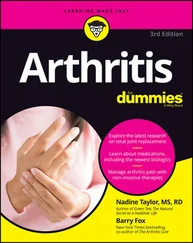| Service |
Frequency Covered |
Cost to You |
| “Welcome to Medicare” checkup |
Once only, during first 12 months in Part B. |
Free, but any other tests the doctor refers you for may require a co-pay. |
| Wellness checkup |
Once every 12 months, after you’ve had Part B for one year. |
Free as long as you ask for a wellness visit and not a “physical.” |
| Abdominal aortic aneurysm screening |
One-time ultrasound for people at risk. |
Free. |
| Alcohol misuse screening and counseling |
One screening and up to four counseling sessions a year. |
Free. |
| Bone mass measurements |
Once a year if you’re at risk for broken bones; more if medically necessary. |
Free. |
| Breast cancer screening (mammograms) |
Once a year for women age 40 or older. |
Free. |
| Cardiovascular disease (behavioral therapy) |
Once a year. |
Free. |
| Cardiovascular disease screening |
Once every five years. |
Free for the tests, but a co-pay is usually required for the doctor visit. |
| Cervical/vaginal cancer screening |
Once every 24 months, or every 12 months if you’re at high risk. |
Free. |
| Colorectal cancer screening — barium enema (when used instead of flexible sigmoidoscopy or colonoscopy) |
Once every 48 months, or every 24 months if at high risk. |
A co-pay is required. |
| Colorectal cancer screening — colonoscopy |
Once every 120 months, or every 24 months if at high risk. |
Free for the test, but a co-pay is required if a polyp is found and removed during the test. |
| Colorectal cancer screening — fecal occult blood test |
Once every 12 months if you’re 50 or older. |
Free. |
| Colorectal cancer screening — flexible sigmoidoscopy |
Once every 48 months if you’re 50 or older. |
Free. |
| Depression screening |
Once a year in a primary-care setting. |
Free screening, but a co-pay is required for doctor visit and follow-up care. |
| Diabetes training |
Training on how to self-manage diabetes — up to 12 hours in the first year and up to two hours every year after that. |
A co-pay is required, and your Part B deductible applies. |
| Diabetes screening |
Up to two screenings a year if you’re at risk of developing diabetes. |
Free. |
| Flu shots |
Once a year in flu season. |
Free. |
| Glaucoma (eye disease) tests |
Once every 12 months if you’re at high risk. |
A co-pay is required, and your Part B deductible applies. |
| Hepatitis B virus (HPV) infection screening |
Annually only for those considered at risk who don’t get a Hepatitis B vaccination. |
Free. |
| Hepatitis C screening test |
One-time screening; yearly screening for people at high risk or those born between 1945 and 1965. |
Free. |
| HIV screenings |
Once every 12 months or up to three times during pregnancy. |
Free. |
| Lung cancer screening |
Once a year for people age 55–77, who are current or former smokers averaging one pack a day for 30 years, but without symptoms of lung disease. |
Free. |
| Obesity screening and counseling |
Behavioral counseling sessions if your body mass index (BMI) is 30 or higher. |
Free. |
| Pneumococcal shot |
After age 65, one type of shot followed at least one year later by a second shot. |
Free. |
| Prostate cancer digital rectal exam |
Once every 12 months for men over 50. |
A co-pay is required, and the Part B deductible applies. |
| Prostate cancer PSA test |
Once every 12 months for men over 50. |
Free. |
| Sexually transmitted infections screenings and counseling |
Tests once every 12 months or more often if pregnant. Up to two counseling sessions with a primary-care provider. |
Free if tests are ordered by a doctor and performed in a Medicare-approved laboratory. |
| Smoking and tobacco use cessation counseling |
Up to eight sessions in any 12-month period. |
Free. |
| X-rays, MRIs, CT scans, EKGs, and so on |
As ordered for diagnosis by a doctor. |
A co-pay is required, and your Part B deductible applies. |
Medicare Part A is usually associated with care within the hospital, of course. But it also covers certain specialized services outside the hospital, most of which focus on nursing. Part B, too, covers some types of specialized care, such as physical therapy. The following sections provide a quick overview.
Say you’ve been in the hospital and are being discharged but still need more-specialized nursing care than you can receive at home — physical therapy to help you walk again after a hip replacement, speech therapy after a stroke, a continuing need for intravenous fluids, or wound care. Medicare covers this type of ongoing care under Part A, usually at what’s called a skilled nursing facility — most often a nursing home — under certain conditions.
The most important condition for Medicare coverage of care in a skilled nursing facility is that you must have been in the hospital as a formally admitted patient for at least three days. (This three-day rule conceals a hidden pitfall — situations where the hospital places you under “observation” — that you really need to know about; see Chapter 14.) A doctor must order the services that you need from professionals such as registered nurses and qualified physical therapists and speech or hearing pathologists. And the skilled nursing facility you go to must be one that Medicare has approved.
Traditional Medicare covers stays in a skilled nursing facility for up to 100 days in a benefit period. The first 20 days cost you nothing; from day 21 through day 100, you pay a daily co-pay, which goes up slightly every year (in 2020, $176 a day). Some Medigap supplemental insurance policies cover these co-pays 100 percent. (Head to Chapter 4for details about Medigap insurance.) If you’re enrolled in a Medicare Advantage health plan, look at your coverage documents or call your plan to find out what it charges for stays in skilled nursing facilities.
These services provide some of the same types of care that you may get in a skilled nursing facility but bring them to you in your own home. They include
Skilled nursing care provided on a part-time basis (no more than eight hours a day over a period of 21 days or less) and including services such as injections, feeding through a tube, and changing catheters and wound dressings.
Physical, speech, and occupational therapy from professional therapists to help you walk again, overcome problems in talking, or regain the ability to perform everyday tasks, such as feeding and dressing yourself — whichever your medical condition requires.

 For more information, check out the official publication “Medicare Coverage of Skilled Nursing Facility Care” at
For more information, check out the official publication “Medicare Coverage of Skilled Nursing Facility Care” at 










